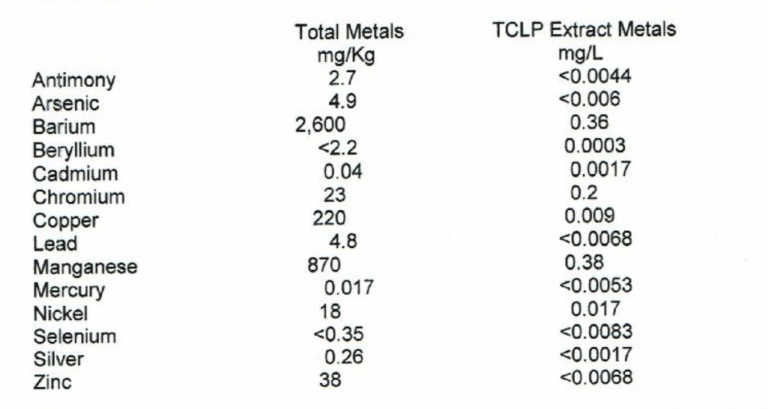Roadbond EN 1 patented soil stabilizer is used in-situ or ex-situ to reduce the permeability of soil, encapsulate and confine RCRA metals and petroleum hydrocarbons, and to prevent these pollutants from leaching into the environment. The process is simple, and utilizes common techniques, practices, and equipment currently utilized in the environmental, construction, and site-work industries. The effectiveness of this strategy is confirmed by TCLP tests conducted according to standards governed by the EPA and other regulatory bodies.
For example, samples consisting of 40% drill cuttings and 60% native clay soil collected near Ardmore, OK were mixed with Roadbond EN 1 according to labeled specifications. This treated mixture was then molded in cylinders for testing. The molded samples along with the raw drill cuttings were delivered to a certified environmental testing facility for evaluation. The samples were analyzed according to EPA method 6010C for RCRA metals, EPA method 8260B for volatile organic compounds, EPA method 8270C for semi-volatile organic compounds, and Texas method 1005 for total petroleum compounds.
TCLP results confirmed that trace amounts of RCRA metals in the distillate were well below regulatory levels and demonstrated how effectively the RCRA metals were encapsulated. The total petroleum hydrocarbons were non-detectible in the distillate, and the permeability was reduced from 3.81 x 10-9 to 9.47 x 10 -10 cm/sec.
Encapsulation with Roadbond EN 1 is an effective soil remediation strategy that uses stabilization/solidification for remediation of soil containing RCRA metals and organic compounds. The advantage of stabilization/solidification with Roadbond EN 1 over other methods are:
- Saves time and money
- Improves the strength and lowers the permeability of the treated soil
- Produces treated fill material that is redirected from the waste stream
- Treated fill material has commercial value

